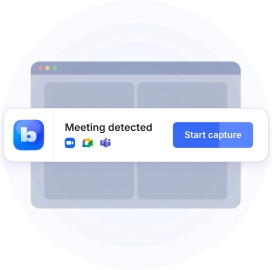
California's recording law requires the consent of all parties involved in a conversation before it can be legally recorded. This law helps protect individuals' privacy by ensuring that confidential communications are not recorded without consent. Understanding the nuances of this law can prevent serious legal issues, such as criminal penalties or civil lawsuits.
By continuing to read, you'll gain valuable insights on how to stay compliant with California's strict recording regulations, and ensure that your recordings are legally admissible in court.
California State Law
Under California Penal Code 632, it is generally illegal to record a conversation without the consent of all parties involved. This is because California is a two-party consent state, requiring all parties to agree to the recording if the conversation is confidential.

What Is Two-Party Consent?
This term refers to a legal standard in states like California that requires all parties to a conversation to provide consent before the conversation can be recorded. This law aims to protect personal privacy and applies to conversations where participants have a reasonable expectation of privacy.
Recording a conversation without their consent is a violation under California Penal Code 632, and the person responsible may face legal consequences, including civil or criminal penalties.
What counts as a confidential communication?
Confidential communication includes any private conversation where at least one party has a reasonable expectation of privacy. Recording a conversation in public, however, may not fall under this rule, as there is no expectation of privacy in such settings.
Legal penalties for violations
Violating California's eavesdropping law can result in severe consequences, such as:
- Criminal penalties: Depending on the circumstances, it can be classified as either a misdemeanor or a felony, with potential penalties including county jail for up to one year or state prison for more serious offenses, such as those involving a felony involving violence.
- Civil liabilities: The other party can file a civil lawsuit seeking damages, including punitive damages.
Exceptions to the law
- Law enforcement personnel: Recordings made by officers with a valid warrant are exempt.
- Public interest: In some cases, recordings made to gather evidence of a crime may be allowed.
Importance of legal advice
If you're facing charges related to an illegally recorded conversation, it’s essential to consult an experienced criminal defense attorney. They can help you understand California's eavesdropping law and navigate the complexities of your case.
Can you legally record conversations?
To legally record conversations in California, you must obtain the consent of all parties involved. This applies to in-person conversations, phone calls, and recordings made using an electronic device or recording device.
Federal Law and Interstate Recordings
Under federal law, recording a conversation requires the consent of one party. This means it is generally legal to record a conversation if at least one person involved in the conversation consents to the recording.
However, when it comes to two-party consent states, such as California, where the California Penal Code and eavesdropping law come into play, all parties must consent to the recording if the conversation is deemed a confidential conversation or occurs in private conversations on private property.
Interstate conversations
When recording an interstate conversation (between parties in different states), legal complexities arise. For example, if one party is in a two-party consent state like California, the stricter law typically applies, and both parties’ consent is required to legally record the conversation. This approach avoids potential violations under either jurisdiction’s wiretapping law.
Consequences of illegal recordings
If a conversation or video recordings are illegally recorded without all parties’ consent, it may be inadmissible in criminal cases and subject to civil penalties. Such violations can result in fines, with a maximum fine, and even criminal penalties if prosecuted.
The role of courts and legal support
In disputes over recorded conversations, a California appellate court or similar federal court may assess whether the recording was lawful, often emphasizing one party’s consent in federal cases or two-party consent in cases involving the California Penal Code. In criminal cases, an experienced criminal defense attorney can help navigate the applicable state and federal laws.
Admissibility Of Recorded Conversations in California
Personal safety
In cases involving threats to a person's safety, California courts may allow otherwise inadmissible recorded conversations if they were obtained to prevent or document a crime. However, this is determined case-by-case, and individuals should consult legal professionals before relying on such recordings.
Public conversations
Recording conversations in public settings where there is no reasonable expectation of privacy may not violate California law. These recordings can be admissible in court since public interactions are not considered confidential communications under the penal code.
Journalistic purposes
Journalists must also adhere to California’s consent requirements. Recording a private conversation without all parties' consent, even for news reporting, violates the penal code and risks civil and criminal repercussions.
Conclusion
Understanding California's recording law is crucial to protecting your conversations and ensuring compliance with state regulations. By following the two-party consent rule, you can avoid legal complications and safeguard sensitive information. Learn more from Is it illegal to video record someone without their permission and call recording laws. While this information is detailed, consulting a qualified attorney is always recommended for specific legal situations.

When it comes to recording meetings or calls, Bluedot AI notetaker stands out as the top choice. Bluedot seamlessly integrates with Google Meet, Microsoft Teams, and Zoom and excels in video-to-text converting, especially when screen sharing is involved. This feature ensures that no critical information is missed, offering a reliable recording of all meeting activities.
Bluedot is more than just transcription, its powerful suite includes automatic meeting transcription, follow-up emails, ai meeting minutes, AI notes generator, and screen record chrome extension, while securely saving recordings for future reference.
With our new AI chat feature, Bluedot further enhances your meeting experience, providing real-time insights and improved collaboration. For those looking for a comprehensive solution to manage, record, and transcribe meetings, Bluedot is the best tool available.









